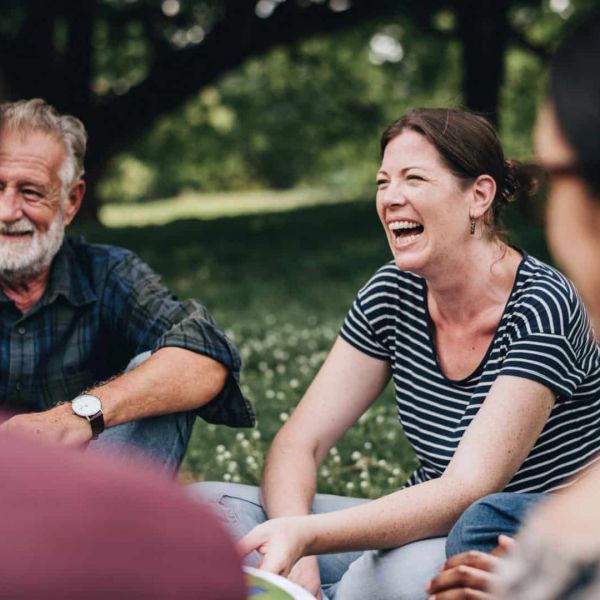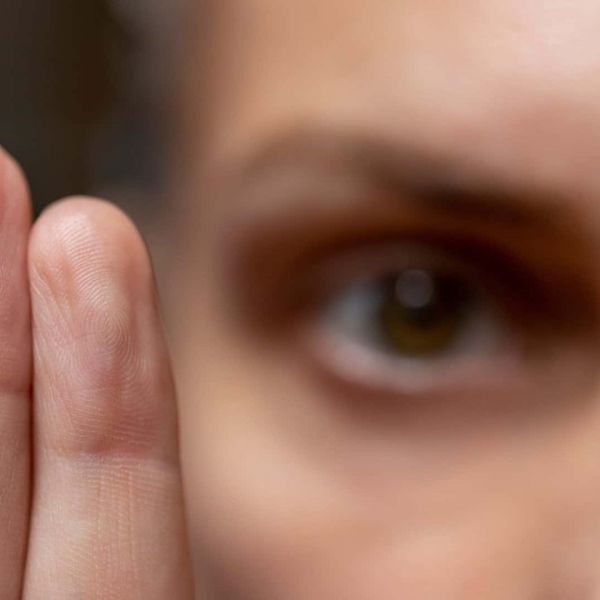Addiction Therapy in Boulder, CO
Flatirons Recovery has emerged as a sanctuary of hope and healing for those battling addiction. Offering comprehensive addiction therapy in Boulder, CO, our center harnesses the serene environment and combines it with evidence-based therapeutic practices. For individuals seeking a transformative journey toward sobriety, Flatirons Recovery provides not just treatment, but an immersive experience that promotes holistic healing and personal growth.

Individual Therapy
At Flatirons Recovery, clients engage in a weekly, 1-hour individual therapy session in order to develop more insight into the behavioral patterns and other factors that influence their substance use. And also, to develop the ability to take appropriate action to begin the healing process.
Topics that may be addressed during individual sessions include:
- Trauma and grief
- Habitual thought and behavioral patterns
- Healing and shifting outdated core beliefs
- Family systems dynamics
- Recovery aspirations and goals
- Self-esteem, identity, and confidence
- Direct communication
- Relationships
- Developing healthy boundaries
Addiction is a multifaceted challenge. It’s deeply rooted not just in physical dependence but in psychological, emotional, and often social factors as well. Group sessions and medical interventions play critical roles in the recovery journey. However, our individual addiction therapy in Boulder, CO stands out as an indispensable component.
In summary, while group therapies and peer interactions offer valuable perspectives and communal support, the personalized care provided in individual therapy is vital. It addresses the deep-seated issues and personal challenges tied to addiction. Thus, ensuring a comprehensive and refined approach to recovery.
Benefits of Individual Addiction Therapy in Boulder, CO
Individual counseling allows for a focused, one-on-one interaction between the therapist and the client. This undivided attention ensures that the unique experiences, challenges, and needs of the individual are thoroughly addressed.
Individual counseling offers a confidential environment where individuals can open up without the fear of judgment.
Establishing a trusting relationship with a therapist can be instrumental in the recovery process. This trust encourages more open communication. Therefore, allowing the individual to delve into underlying issues related to their addiction.
Addiction triggers and the associated coping mechanisms vary greatly between individuals. In a one-on-one setting, therapists help devise personalized strategies that cater specifically to the individual’s triggers and challenges.
Many individuals battling addiction also struggle with other mental health issues. Such as depression, anxiety, or PTSD. Individual counseling provides an opportunity to diagnose and address these co-occurring disorders. Thereby, ensuring a holistic approach to treatment.
Personal growth and goal-setting are central to sustained recovery. In individual counseling, therapists work closely with clients to set both short-term and long-term goals.
Regular individual sessions allow therapists to monitor progress closely. In addition, they provide feedback and adjust treatment plans as necessary.
Individual counseling often involves introspective exercises that enhance self-awareness. Recognizing patterns, understanding emotions, and learning strengths and weaknesses empower individuals to make positive changes.
Continuous individual interactions also reinforce the individual’s commitment to sobriety. Discussing achievements, setbacks, hopes, and fears in a personal setting serves as a powerful motivator.
Recovery doesn’t end with the conclusion of a treatment program. Individual counseling can be continued post-treatment. Thereby, offering valuable support during the transition to everyday life and helping prevent relapse.


Family Therapy
At Flatirons Recovery, clients may engage in a bi-weekly, 1-hour family session. Here, they develop more insight into the systemic ways in which substance use disorders impact their family life. Family therapy sessions will be coordinated by therapists. Typically, it takes place beginning 2 weeks into the client’s treatment program.
Family therapy during addiction treatment recognizes the profound interconnectedness of an individual’s substance abuse and their family relationships. In addition, it operates on the understanding that addiction affects not just the individual but also the entire family unit. Through this addiction therapy in Boulder, CO, families come together to:
- Understand addiction
- Heal relationships
- Improve communication
- Develop support systems
- Address enabling behaviors
- Deal with co-existing issues
Ultimately, family therapy during addiction treatment not only aids the individual in recovery but also fortifies the entire family unit. As a result, mending broken bonds and establishing a foundation for long-term healing and sobriety.

Group Therapy
At Flatirons Recovery, clients will engage in 30 hours of group programming during PHP/Day Treatment programming, and 9-15 hours of group programming during Intensive Outpatient programming (IOP).
Group therapy is a cornerstone of many addiction treatment programs. And its significance cannot be overstated. By bringing individuals together who are battling similar substance use issues, it fosters a sense of community and mutual understanding. Here are the key reasons why group therapy is pivotal in addiction treatment:
- Shared experience: Being in a group allows individuals to see that they are not alone in their struggles. This realization can be profoundly comforting and diminish feelings of isolation often associated with addiction.
- Peer support: Fellow group members offer invaluable encouragement, understanding, and advice. This peer support can be a catalyst for positive change and provides a safety net during challenging times.
- Learning through others: Participants learn from others’ experiences, successes, and mistakes. Therefore, they gain insights that they may not have encountered in individual therapy.
- Enhanced communication skills: Engaging in group discussions helps individuals refine their communication skills—teaching them to listen actively and express themselves more effectively.
- Accountability: Regularly sharing progress, setbacks, and goals with a group builds a sense of responsibility for oneself and the group. This accountability strongly motivates sustained recovery.
- Diverse perspectives: Each group member brings a unique perspective. These varied viewpoints offer fresh solutions, coping strategies, and ways of thinking about addiction.
In essence, group therapy provides a supportive environment where individuals grow, learn, and heal together, making it an indispensable component of the Flatirons Recovery addiction therapy in Boulder, CO.
Our Therapeutic Modalities in Boulder, CO 

Cognitive-Behavioral Therapy (CBT)
Cognitive-behavioral therapy (CBT) is the most readily recognizable form of psychotherapy. And the kind that most people probably think about when they imagine “going to therapy.” It addresses people’s thought patterns, feelings, and subsequent behaviors. Thus, offering new perspectives on people’s experiences and teaching them to confront problems in a healthy way.
CBT is an umbrella term. There is a vast array of “sub-categories” of CBT. All of these are designed to address the problems that can arise when thoughts, feelings, and behaviors become inextricably linked. Some of these modalities of CBT include ACT and DBT.

Acceptance and Commitment Therapy (ACT)
Acceptance And Commitment Therapy (ACT) is one of our therapeutic modalities. ACT is based on the premise that distressing thoughts and feelings can be successfully managed by developing the ability to observe them with an attitude of non-judgment and acceptance. While it may seem counterintuitive, leaning into negative thoughts often has the effect of making those thoughts less painful or “sticky.”
ACT dictates that when people are no longer trapped in the quicksand of their negative thought patterns, they are freer to identify the people, places, and ideas that are valuable to them. Those values then act as a life compass, providing guidance and direction when the going gets tough.

Dialectical Behavioral Therapy (DBT)
The theory behind dialectical behavioral therapy (DBT) is that some people react in a more intense manner toward certain emotional situations. Primarily, those found in their close relationships. This heightened emotional reactivity causes people to see the world in black-and-white terms. Additionally, it can lead to recurring episodes of crisis or self-destructive behavior. This significantly impacts their day-to-day functioning.
Learning DBT skills which focus on mindfulness, healthy communication, emotion regulation, and distress tolerance reduces the intensity and impact of difficult emotions, such as anger, hurt, betrayal, jealousy, and hopelessness. DBT has also been shown to alleviate recurring thoughts of suicide or self-harm.

Experiential Therapy
Experiential Therapy is also an umbrella term used to describe various therapies that allow people to heal in the context of an activity or experience. Instead of relying on traditional means of verbal communication. In general, the emphasis in these therapies is placed on the process of engaging in the activity. Rather than any particular product created during the course of the sessions.
Under the guidance of a trained experiential therapist, people begin to release and explore negative feelings, such as anger, hurt, or shame. They develop self-confidence and feel increased self-esteem; cultivate curiosity and enthusiasm; challenge fears; and discover new forms of self-expression. Examples of our experiential addiction therapy in Boulder, CO, include expressive arts, music, wilderness, psychodrama, and equine therapies.

Eye Movement Desensitization And Reprocessing (EMDR)
Eye Movement Desensitization and Reprocessing (EMDR) is a highly effective therapeutic modality for clients who have experienced trauma. It was long believed that trauma could take years to work through. However, research shows that EMDR significantly reduces trauma symptoms in as few as three sessions.
In such a session, a person would be asked to recall distressing memories. Then, the therapist would direct the person in some type of bilateral stimulation. For example, rapid, side-to-side eye movements. While there are several theories concerning the specific mechanisms for its effectiveness, EMDR has been shown to provide rapid relief for people suffering from PTSD, depression, anxiety, and other debilitating conditions.

Motivational Interviewing (MI)
Motivational interviewing is a counseling method that helps people resolve ambivalent feelings and insecurities to find the internal motivation they need to change their behavior. It is a practical, empathetic, and short-term process that takes into consideration how difficult it can be to form new habits and create lasting change in one’s life.
Research has shown that the MI therapeutic modality works particularly well with people who initially feel unmotivated or unprepared for change.
Personalized Addiction Therapy in Boulder, CO
At Flatirons Recovery, our dedication to holistic healing and individualized care is unmatched. We pride ourselves on providing evidence-based, multifaceted addiction therapy. Moreover, we customize treatment to meet the unique needs of each individual. Our compassionate team of professionals, coupled with the supportive community of Boulder, ensures that every individual embarking on the path to recovery is never alone. Flatirons Recovery isn’t just a rehab center. It’s a safe retreat and a testament to the transformative power of our holistic addiction therapy in Boulder, CO. Here, healing isn’t just possible—it’s a promise.
Contact us today to get started on your personal path to transformation and recovery.